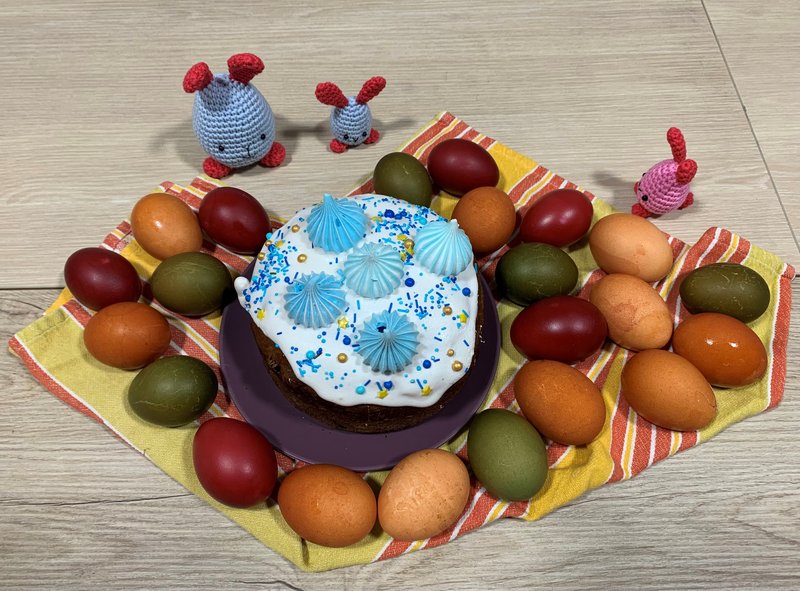Easter in Batumi
Adam Noble is an Encounter Worldwide volunteer based in Batumi, Georgia, here he shares his reflections on experiencing Orthodox Easter
A fortnight or so ago, bundles of what looked like small twigs appeared among the carefully stacked fruit and vegetables outside my local grocers. They didn’t look appetising or indeed edible. So I enquired. It turns out that they are not twigs but the roots of the Madder plant. Their appearance in the shops is a sign that Orthodox Easter is around the corner. They produce the dye used to colour traditional Orthodox Easter eggs a deep red to remind believers of Christ’s blood shed on the cross. (For the record, yes, I did have a go at making some. I was quite pleased with the results but they were not a patch on those produced by Russian friends!)

This year, Orthodox Easter Sunday fell on 16th April, one week after Easter in western Churches. Georgia is staunchly Orthodox. The Church is the most respected institution in the country. Easter services are packed bursting. I attended the Good Friday service and the Easter Vigil service which begins at 11pm on Saturday and runs into the small hours of Sunday morning. Crowds of young and old gathered in the dark carrying unlit candles. The service began with lamentations. At midnight, the celebration of Christ’s resurrection began. The congregation left the church in darkness and lit their candles before processing round the church and re-entering to continue the service.
Some non-Orthodox churches here choose to follow the Orthodox calendar. But the tiny band of Methodists here decided that the opportunity to celebrate Easter twice was too good to pass up. So our Russian and Belorusian friends, both believers and non-believers, were invited to our Home Group to share in celebrations on both weekends. We sang, read Scripture and enjoyed a bring and share lunch (complete of course with dyed Easter eggs).
As I have got to know better those who attend our activities (classes and a Sunday home group), they have started to share their stories. Their voices are a mixture of sadness and anger as they remember the last twelve months. Some of those I have met here, especially among the Belorusians, have faced prison for what they have said or written. But, on the whole, they are not natural political animals. They are proud Russians and Belorussians who have been effectively forced into political exile.
This has meant huge sacrifices: leaving behind family, friends, homes and livelihoods, often uprooting families with small children to move to a city where, although they have been made to feel welcome, their future is uncertain. On top of this, those friends and family who the Russians have left behind often support Putin’s war and will now have nothing to do with them. The prospect that they may not be able to return to their homelands saddens them profoundly.
And so for at a few hours at least on the last two Sundays, an Easter celebration has lifted the spirits of a small group of the thousands of Russians and Belarusians here in Batumi. Please remember our friends and all those displaced by war in your prayers.